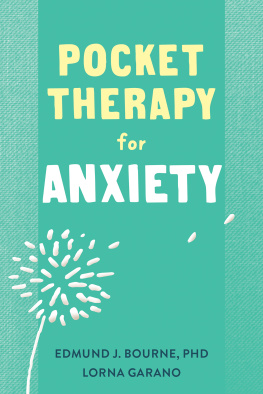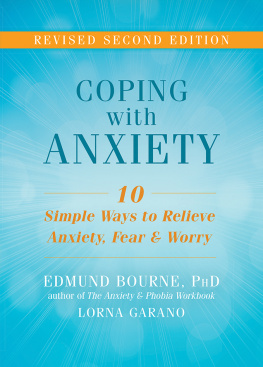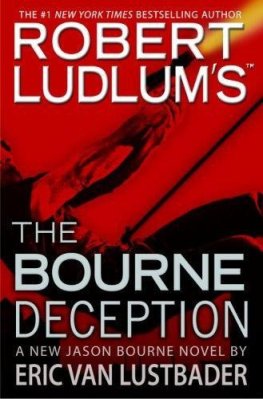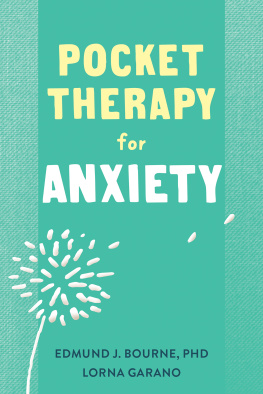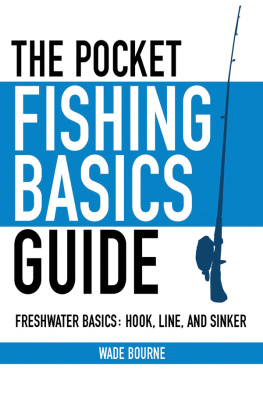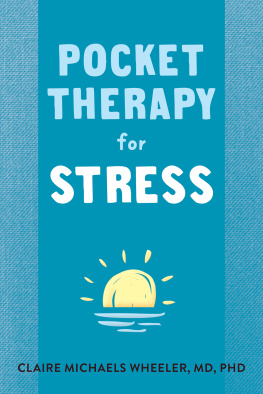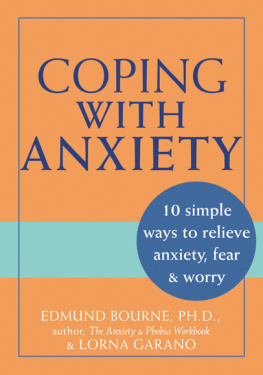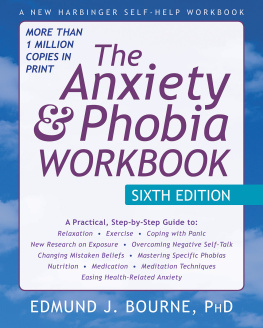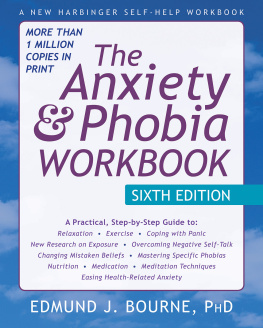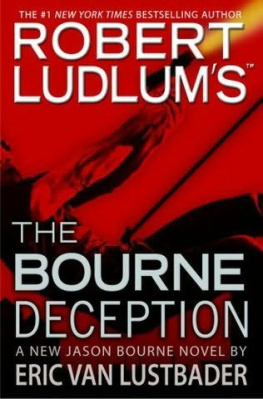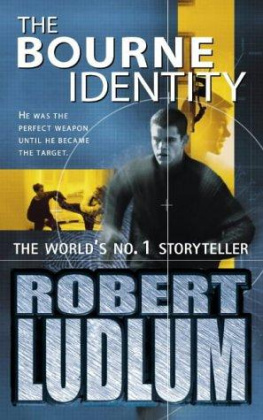Edmund Bourne - Pocket Therapy for Anxiety
Here you can read online Edmund Bourne - Pocket Therapy for Anxiety full text of the book (entire story) in english for free. Download pdf and epub, get meaning, cover and reviews about this ebook. year: 2020, publisher: New Harbinger Publications, genre: Religion. Description of the work, (preface) as well as reviews are available. Best literature library LitArk.com created for fans of good reading and offers a wide selection of genres:
Romance novel
Science fiction
Adventure
Detective
Science
History
Home and family
Prose
Art
Politics
Computer
Non-fiction
Religion
Business
Children
Humor
Choose a favorite category and find really read worthwhile books. Enjoy immersion in the world of imagination, feel the emotions of the characters or learn something new for yourself, make an fascinating discovery.
- Book:Pocket Therapy for Anxiety
- Author:
- Publisher:New Harbinger Publications
- Genre:
- Year:2020
- Rating:4 / 5
- Favourites:Add to favourites
- Your mark:
- 80
- 1
- 2
- 3
- 4
- 5
Pocket Therapy for Anxiety: summary, description and annotation
We offer to read an annotation, description, summary or preface (depends on what the author of the book "Pocket Therapy for Anxiety" wrote himself). If you haven't found the necessary information about the book — write in the comments, we will try to find it.
Pocket Therapy for Anxiety — read online for free the complete book (whole text) full work
Below is the text of the book, divided by pages. System saving the place of the last page read, allows you to conveniently read the book "Pocket Therapy for Anxiety" online for free, without having to search again every time where you left off. Put a bookmark, and you can go to the page where you finished reading at any time.
Font size:
Interval:
Bookmark:

Leaf through the pages of this extraordinary book on anxiety, and youll find helpful steps to overcome anxiety that you can use right away. You might hear yourself say, I can do this. Indeed, you can. The authors have taken the guesswork out of combating anxiety. By knowing how to overcome anxiety, and doing what you know, you might soon ask yourself, where did my anxiety go?
Bill Knaus, EdD, author of The Cognitive Behavioral Workbook for Anxiety, and coauthor of The Cognitive Behavioral Workbook for Anger
Pocket Therapy for Anxiety strikes a perfect note for our times: accessibility. It provides cutting-edge strategies for anxiety that are understandable and can be taken wherever the user goes, since anxiety can show up anywhere. It is ideal for those experiencing anxiety, and a spot-on supplement for clinicians to recommend in therapy.
Timothy A. Sisemore, PhD, is professor at California Baptist University, and author of The Clinicians Guide to Exposure Therapies for Anxiety Spectrum Disorders
A comprehensive, relatable, and easy-to-implement manual on how to relieve your anxiety. Highly recommended.
Jennifer V. Owens, MA, LPC, counselor specializing in treating anxiety disorders incorporating cognitive behavioral therapy (CBT); and founder of Fly with the Greatest of Ease, a program for fearful flyers
Bourne and Garano have written Pocket Therapy for Anxiety. Opening with practical exercisesfrom relaxing body and mind; thinking realistically; advice on how to face fears, eat properly, exercise regularly, simplify life, and cope in the momentthey finish with a useful anxiety tool kit that can be kept close at hand. The book is upbeat, clear, and conciseand anxiety and life seem eminently manageable.
Lynne Henderson, PhD, author of Improving Social Confidence and Reducing Shyness Using Compassion Focused Therapy and Helping Your Shy and Socially Anxious Client
Pocket Therapy for Anxiety teaches us to quiet our noisy worries, settle our problems rationally, smooth out our daily tensions, and nourish our physical body. Concise and to the point.
Reid Wilson, PhD, author of Stopping the Noise in Your Head
Edmund Bourne is a legend in the field of anxiety disorders, with decades of treatment and research experience under his belt. In their new book, Pocket Therapy for Anxiety, Bourne and his coauthor, Lorna Garano, condense their vast experience to present an authoritative and user-friendly pocket guide for managing the dramatic levels of anxiety people are facing today. If you buy one self-help book on anxiety this year, this should be the one.
Christian R. Komor, PsyD, author of The Power of Being and Climate Deadline 2035
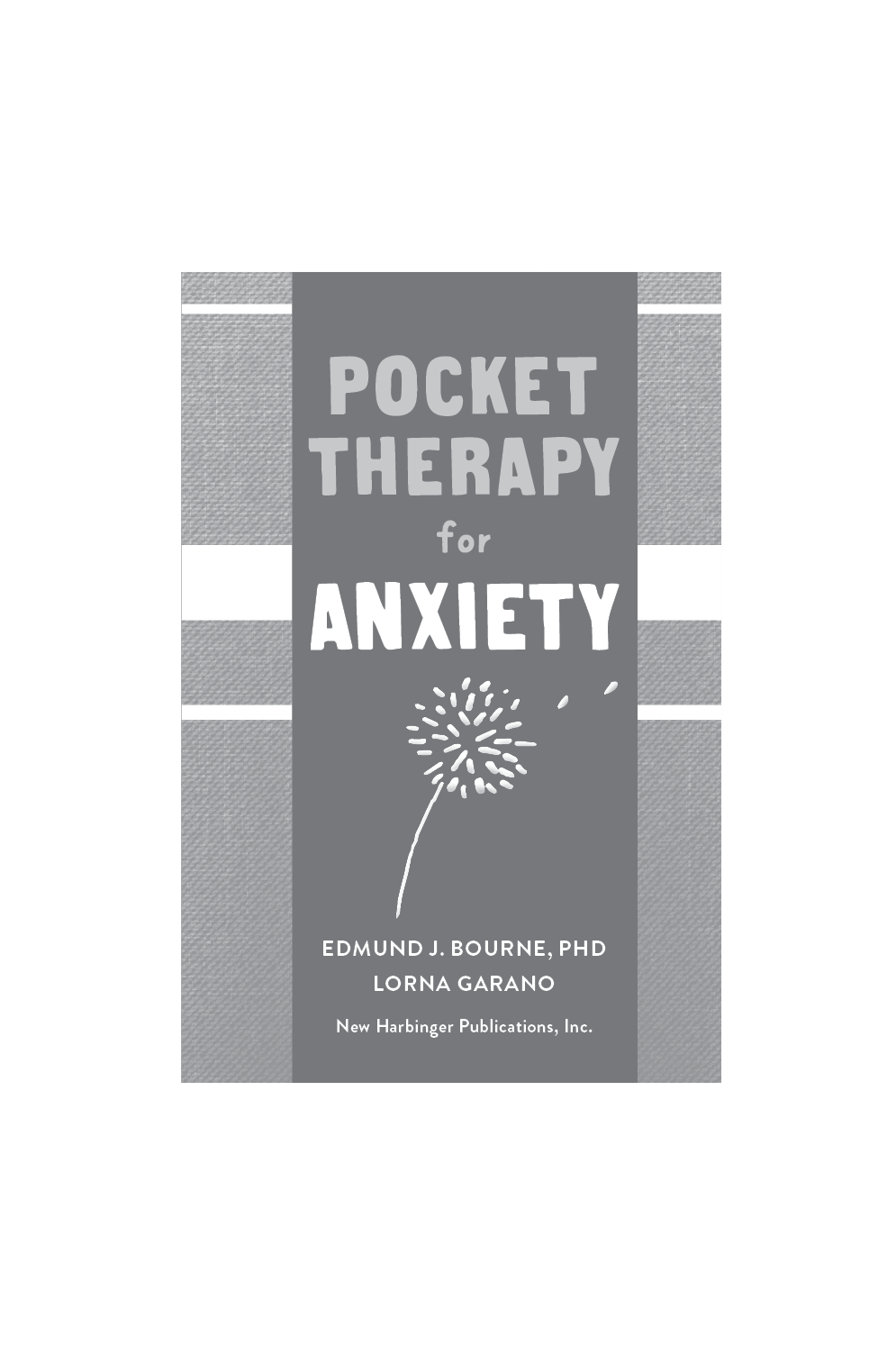
Publishers Note
This publication is designed to provide accurate and authoritative information in regard to the subject matter covered. It is sold with the understanding that the publisher is not engaged in rendering psychological, financial, legal, or other professional services.
Distributed in Canada by Raincoast Books
Copyright 2020 by Edmund Bourne and Lorna Garano New Harbinger Publications, Inc.
5674 Shattuck Avenue
Oakland, CA 94609
Make a Plan to Deal with Worry, page 152, adapted with permission from The Worry Control Workbook by Mary Ellen Copeland (2000).
Cover design by Sara Christian; Acquired by Elizabeth Hollis Hansen; Edited by Marisa Sols; Text design by Michele Waters and Amy Shoup
All Rights Reserved
Printed in the United States of America
Library of Congress Cataloging-in-Publication Data on file
Contents
Introduction
This is a book about how to cope with anxiety. Its a little package of practical strategies that will help you better understandand handleyour anxiety, whatever its form.
Before we get to the strategies, though, this introduction is a quick primer on the nature and types of anxiety.
Anxiety comes in many guises. Understanding more about your particular type of anxiety can help you get a better idea of what youre dealing with. Equally important, understanding where your particular issues with anxiety might have come fromand what causes are likely to keep it goingwill help you decide which of the many strategies in this book might help you most.
Anxiety 101
Anxiety is an inevitable part of life in our times. Many situations come up in everyday life where its appropriate and reasonable to react with some anxiety. The strategies in this book can be of use to anyone experiencing normal, ordinary anxiety reactions (everyone, in other words) as well as those dealing with specific anxiety disorders.
Anxiety affects your whole being. It is a physiological, behavioral, and psychological reaction all at once. On a bodily level, anxiety may involve rapid heartbeat, muscle tension, queasiness, dry mouth, or sweating. On a behavioral level, it can paralyze your ability to act, express yourself, or deal with certain everyday situations. Psychologically, it is a state of apprehension and uneasiness. In its most extreme forms, anxiety can cause you to feel detached from yourself and even fearful of dying or going crazy.
The fact that anxiety can affect you on all these levels means that a complete program of coping with anxiety must address all three components. The cognitive-behavioral skills in this book will teach you to reduce physiological reactivity, eliminate avoidance behavior, and change self-talk that feeds your apprehension and worry.
Anxiety can appear in different forms and at different levels of intensity. It can range in severity from a mere twinge of uneasiness to a full-blown panic attack marked by heart palpitations, trembling, sweating, dizziness, disorientation, and terror. Anxiety that is not connected with any particular situationthat comes out of the blueis called free-floating anxiety . In more severe instances, it can manifest as a spontaneous panic attack.
If your anxiety arises only in response to a specific situation, it is called situational anxiety or phobic anxiety. Situational anxiety is different from everyday worries in that it tends to be out of proportion or unrealistic. If you have a disproportionate apprehension about driving on freeways, going to the doctor, or socializing, this may qualify as situational anxiety. Situational anxiety becomes phobic when you actually start to avoid the situation: you give up driving on freeways, going to doctors, or socializing altogether. In other words, phobic anxiety = situational anxiety + persistent avoidance of the situation.
Often anxiety arises merely by thinking about a particular situation. When you feel distressed about what might happen when you have to face a difficult or even phobic situation, you are experiencing what is called anticipatory anxiety . In its milder forms, anticipatory anxiety is indistinguishable from ordinary worry. ( Worrying can be defined as anticipating unpleasant consequences about a future situation.) But sometimes, anticipatory anxiety becomes intense enough to be anticipatory panic.
There is a difference between spontaneous anxiety/panic and anticipatory anxiety/ panic. Spontaneous anxiety tends to come out of the blue, peaks to a high level very rapidly, and then subsides gradually. The peak is usually reached within five minutes, followed by a gradual tapering over an hour or more. Anticipatory anxiety tends to build more gradually in response to encountering or simply thinking about a threatening situation, and may last longer. You may worry yourself into a frenzy about something for an hour or so and then let go of the worry as you tire or find something else to occupy your mind.
Font size:
Interval:
Bookmark:
Similar books «Pocket Therapy for Anxiety»
Look at similar books to Pocket Therapy for Anxiety. We have selected literature similar in name and meaning in the hope of providing readers with more options to find new, interesting, not yet read works.
Discussion, reviews of the book Pocket Therapy for Anxiety and just readers' own opinions. Leave your comments, write what you think about the work, its meaning or the main characters. Specify what exactly you liked and what you didn't like, and why you think so.

